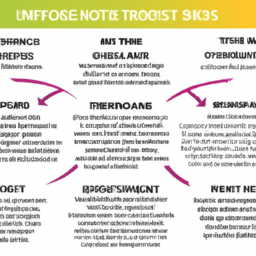Exchange-traded funds, or ETFs, can offer investors tax benefits, lower risk, and diversification in their portfolios. ETFs are a type of investment that tracks an index, a commodity, bonds, or a basket of assets like an index fund. Unlike most mutual funds, ETFs trade like stocks on an exchange, allowing investors to buy and sell shares throughout the day. With ETFs, investors can get exposure to a broad range of asset classes, including stocks, bonds, commodities, and other investment, in a single fund.
Experts say ETFs are increasingly popular due to the tax advantages they offer. ETFs are structured so that investors pay less in capital gains taxes than they would with a traditional mutual fund. Additionally, ETFs can be bought and sold throughout the day, allowing investors to take advantage of market opportunities as they arise.
Another benefit of investing in ETFs is that they provide diversification. ETFs allow investors to diversify their portfolios by investing in a variety of asset classes, including stocks, bonds, commodities, and other investment. By investing in a variety of asset classes, investors can reduce their risk and potentially increase their returns.
